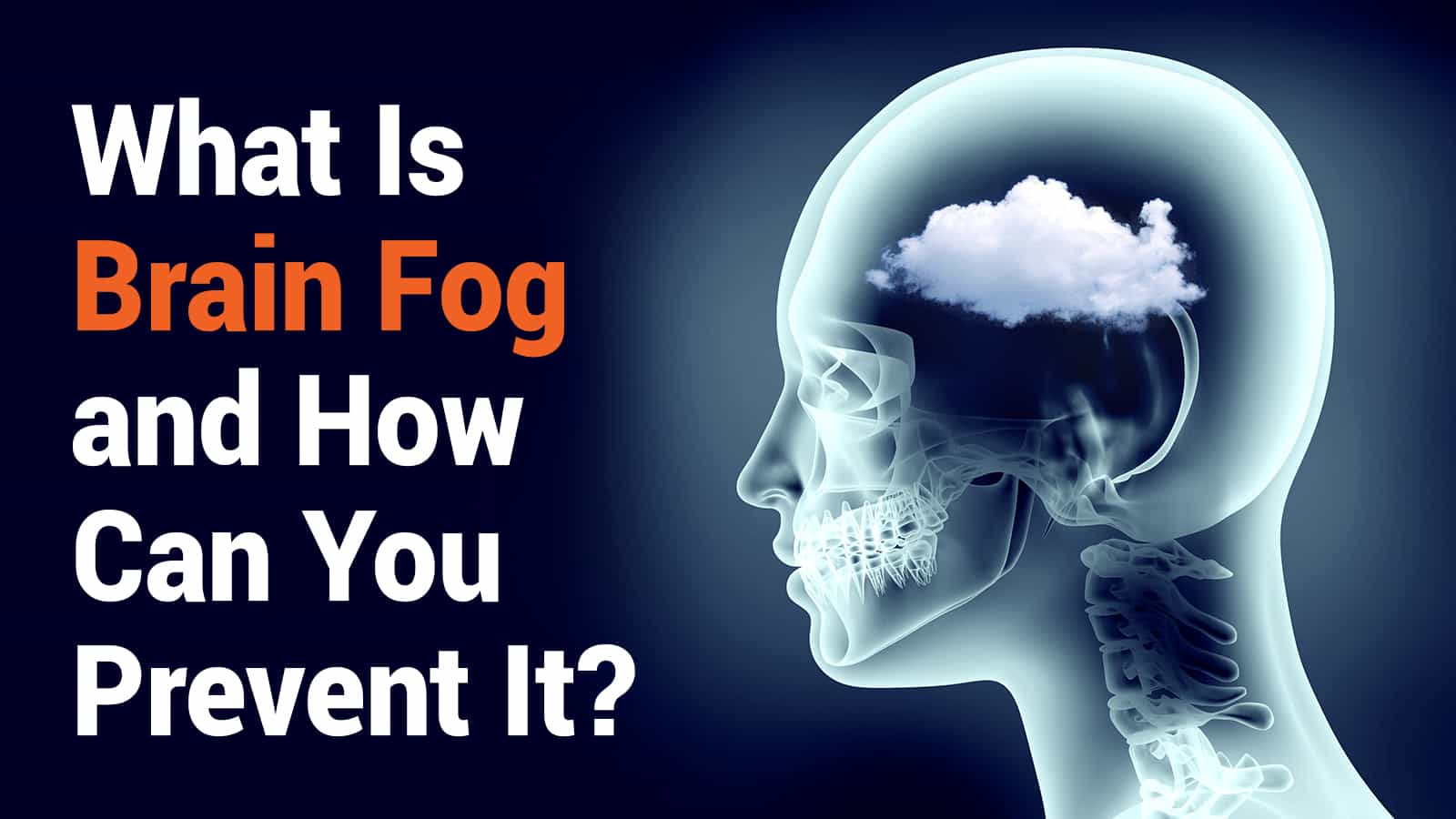Have you ever experienced brain fog? It is a genuine and sometimes almost debilitating problem, especially if you experience it severely. And even if it’s something you can try to push through, you shouldn’t have to force optimistic thinking to make it through the fog. So, what is brain fog?
Is it something you can cure? Is it normal, or is it something you need medical aid for?
What Is Brain Fog?
Read on to learn exactly what brain fog is and three ways to prevent it.
1. Defining Brain Fog
Brain fog, also known as mental fog or the clouding of consciousness, is a state where someone feels or behaves in a “cloudy” or “foggy” way. Essentially, they are less aware, less awake, and less attentive to their surroundings, themselves, and the things they’re doing.
From a psychopathology standpoint, brain fog occurs because there is a disturbance or problem with a part of the brain responsible for managing consciousness. This regulating portion of the brain is responsible for overall awareness and arousal. Although it sounds akin to drowsiness, brain fog is not necessarily a result of sleepiness; many studies indicate that it feels more like being awake physically but being less sharp in another.
What Is Brain Fog Like?
Different people describe brain fog in different ways. The overall experience is a foggy mental clouding, but it may also be described as:
- Feeling spaced out
- Misty or fuzzy vision
- Feeling dissociated, derealized, or depersonalized from your body
- Being unable to think straight
- Feeling cognitively impaired in some way
- Slowing down in mental speed, motor control, and executive function
- A lack of ability to fully control one’s body
- A lack of ability to trust oneself and one’s judgment
This is a problem because most everyday activities require cognition, which needs some degree of positive arousal to be performed. Research states that the cognitive effects that may be temporarily impaired by brain fog include:
- Voluntary motor control
- Memory
- Executive function
- Constructive abilities
- Language
- Learning
- Comprehension
- Attention
- Thought process
- Mental speed
2. The Causes of Brain Fog
Brain fog can be a result, side effect, or symptom of many different problems. Here are some of the possible causes:
· Lack of Sleep
The most common form of brain fog is a result of something simple – a lack of sleep. It makes sense that physical sleepiness would contribute to mental tiredness, after all.
· Diet
Food allergies, nutritional deficiencies, hydration, and general dietary health can contribute to brain fog. If you lack vitamin B-12, you could feel foggier and face struggles with cognitive function, for example, and getting too little water will deplete that too.
· Mental Or Neurodevelopmental Disorders
Depression, anxiety, chronic stress, ADHD, and PTSD can all have brain fog as symptoms or side effects. Studies show that mental disorders like this take up valuable resources that you need for cognition. You use up a lot of mental energy on managing and even just experiencing these disorders, to begin with, leaving you without enough resources to remain fully awake and attentive. Of course, many conditions may also affect the parts of the brain that impact cognition, already placing you at a disadvantage.
· Physical Disorders
A more severe source of brain fog as a symptom is a physical disorder. In many cases, these disorders are either chronic or at least moderately severe, requiring quick treatment. Do some research on symptoms of specific illnesses and see if you’re experiencing any symptoms of a particular disease. Common conditions that can cause brain fog include anemia, lupus, Sjögren syndrome, diabetes, hypothyroidism, arthritis, chronic fatigue syndrome, and multiple sclerosis. These conditions all induce brain fog in different ways.
· Medications
Medications can cause many different side effects, and sometimes, brain fog is one of them. It’s a good idea to be fully aware of what your supplements and medicines may do in terms of side effects before you take them, so you don’t panic when you see those side effects occur.
Of course, keep in mind that the only accurate way to find out what is causing your brain fog is to seek a doctor’s opinion – which brings us to our next point.
3. Diagnosing Brain Fog
Brain fog is not a formal diagnosis; instead, it is a symptom of a broader problem or a side effect of some other condition. As such, brain fog cannot be genuinely or directly “diagnosed” in the most commonly understood sense. But that doesn’t mean that it’s not a problem that requires professional care or help!
If you’re experiencing brain fog and are struggling with your everyday life with no signs of improvement, you should see your doctor. They will likely have to conduct multiple tests and examinations to properly diagnose the cause of the brain fog, which could be anything from general tiredness to a chronic medical condition.
Expect to answer questions and undergo tests about:
- Your diet
- The current supplements or medications that you take
- Glucose levels
- Nutritional health
- Physical activity
- Mental health
- Thyroid function
- Kidney function
- Liver function
- Inflammatory disease
- Infections
- Any other symptoms or side effects that you may have
Three Ways To Prevent Brain Fog
1. Practice Mindful Behaviors
Mindfulness gets a reputation related to meditation, but it’s about more than just that. It is the act of being grounded and aware by paying attention to the current moment, your senses, yourself, and the environment. It’s pretty easy to see the positive connection between practicing mindful behaviors and preventing brain fog! Here are some mindful behaviors to try out:
· Take Off The Headphones
If you go everywhere with music, podcasts, or other things blasting in your ear, you’re missing out on the sounds of the world around you. Put them away and focus on paying attention to the sounds around you. Do you hear someone’s voice? The creaking of your furniture? The spinning of your fan? The wind whistling? Paying attention to all of these pieces of sensory input can help keep you alert. If you really must have those earphones on, lower the volume, so they don’t block out external sounds.
· Smell Something Nice
Engage your sense of smell by lighting scented candles, diffusing essential oils, or wearing lovely lotions or scents on your body. Research has found that scents like rosemary can bring about relaxation and calmness while improving cognitive function.
· Perform Physical Activity
Physical activity brings you to your body, focusing on exerting your muscles and body parts while releasing positive hormones. Research shows that exercising can help parts of the brain grow in size and strength, helping to combat brain fog. You don’t need to perform an exhausting exercise routine to gain these positive thinking benefits; dancing, gardening, and going for a walk are all acceptable options!
2. Change Your Environment
Spending all your time in the same environment constantly can contribute to under-stimulation that promotes brain fog. Switching things up can help you feel more engaged in yourself and the world around you, breaking you out of that misty feeling or preventing it from ever happening. Here are some ways to change your environment to avoid or stop brain fog:
· Work Somewhere New
If you work from home or in a flexible environment, bring your work items with you to a cafe, library, or other working space. The switch in scenery can be enough to invigorate you!
· Try New Things
Visit a new place. Try a new recipe or order food from a different place. Shop somewhere that you don’t usually shop. Suggest new hangout spots. Listen to a genre of music you don’t typically like. All of these things can help you be more alert by stimulating and interesting your brain.
· Move Things Around Your House
You don’t need to redecorate or even spend energy pushing all your furniture around to move things around. Swap out some pictures, hang up a couple of new decorations, move some light items to new places… anything to create some variety in your living experiences!
· Read A Book
Reading a book can spark creativity, get you thinking, and engage you in something novel and exciting. Do note, however, that using books as escapism – while stimulating at the moment – may exacerbate brain fog later on, so use this tip wisely!
3. Make Lifestyle Changes
If your brain fog is caused by some aspects of your lifestyle, you may need to change those aspects to prevent the occurrence of that cloudiness. Here are some lifestyle changes to consider:
· Get More Sleep
Many people aren’t getting as much sleep as they need, and studies have found that sleep deprivation can lead to the impairment of many cognitive functions. You need at least 7, if not 8, hours of sleep per night to truly be rested the next day.
· Eat Healthily
While food isn’t usually the leading cause of brain fog, it can contribute to its severity or increase its risk. You don’t necessarily need a complex meal plan. Eating enough protein, favoring whole foods over processed ones, and meeting your daily nutritional needs can already work wonders for your cognitive state.
· Make Time For Hobbies
In your daily life, you may be so busy that you don’t have time to do the things that you love. But it would be best if you made time for them so you can take your mind off the stressful events of life that could cause brain fog. If you’re a very busy person, you need to schedule your own resting time. This time should be entirely uncompromisable and should be a crucial part of your schedule. Getting enough rest or free time to do things that aren’t stressful or demanding is crucial to any human being’s cognitive function.
Final Thoughts On Understanding What Brain Fog Is And How To Prevent It
Brain fog can be very difficult to deal with, but you don’t have to suffer through it in silence. If your brain fog is a symptom of a worse problem – or you believe that it is – you should speak to a doctor about what you’re experiencing. They will be able to point you to helpful treatment or supplement options that can reduce your brain fog’s severity.

















 Community
Community

